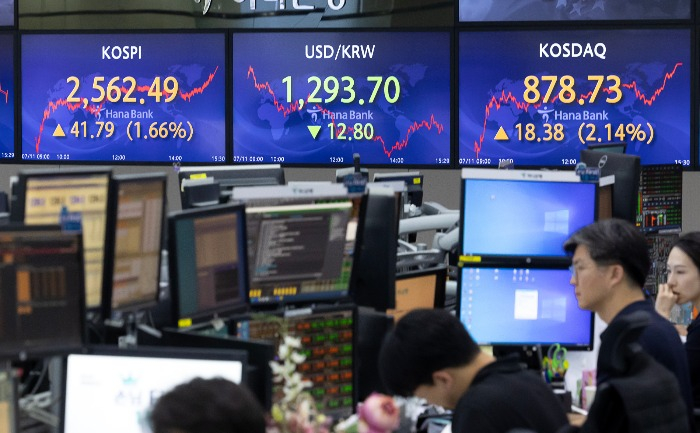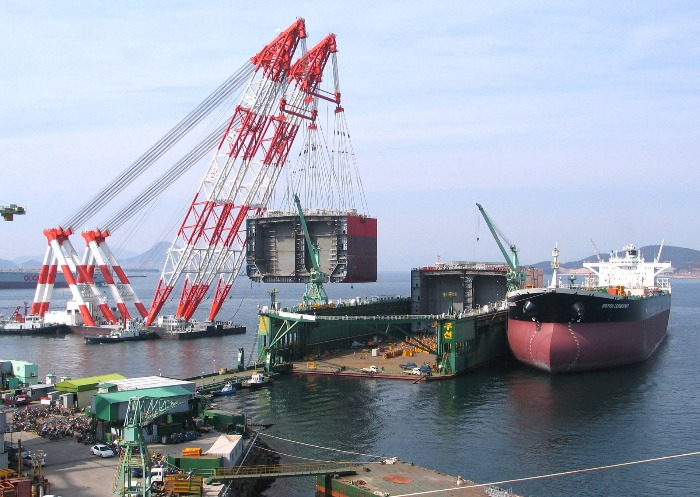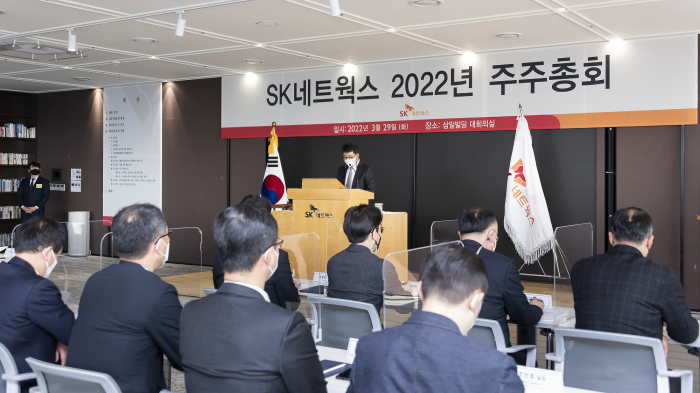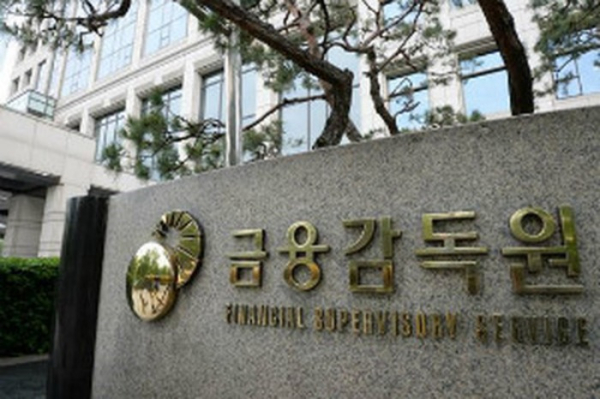Korean stock market
Speculative bets heat up on to-be-delisted preferred stocks
Analysts say a growing number of preferred stocks could be pushed to the brink of delisting and become speculative trade targets
By Jul 12, 2023 (Gmt+09:00)
3
Min read
Most Read
LG Chem to sell water filter business to Glenwood PE for $692 million


Kyobo Life poised to buy Japan’s SBI Group-owned savings bank


KT&G eyes overseas M&A after rejecting activist fund's offer


StockX in merger talks with Naver’s online reseller Kream


Mirae Asset to be named Korea Post’s core real estate fund operator



Preferred stocks of five South Korean companies, including Samsung Heavy Industries Co. and SK Networks Co., have been on a roller coaster ahead of their removal from the stock exchange next week, out of sync with the steady Kospi market.
Speculative investors have made ultra short-term bets on the stocks, which market analysts warned may continue to haunt the market. Toughened stock market rules will likely disqualify a growing number of preferred shares from public market trade.
On Tuesday, the price of Samsung Heavy’s preferred shares plunged 14.47% to close at 6,450 won ($5), after fluctuating 20 percentage points during the session. That compared to the slight gain in its common shares, which ended at 7,540 won.
Hyundai BNG Steel Co. saw its share price skyrocketing 97% at one point the same day, before ending 13.93% higher at 14,820 won.
Preferred shares of trading company SK Networks, electronics components maker DB HiTek Co. and Heungkuk Fire & Marine Insurance Co. swung back and forth by 10 to 20 percentage points on Tuesday.

On June 30, the Korea Exchange decided to delist the preferred stocks of the five companies on July 17, citing an insufficient number of their outstanding shares. Their stock holders are allowed to cash out between July 9 and 14.
They are free from daily percentage change limits of 30% in both directions during the period.
Their high price volatility is reminiscent of the case of medical device maker SY Corp. in 2013, when its preferred share price spiked up over 8 million percentage points in a single day ahead of delisting.
To-be-delisted preferred stocks are not traded in real time. Instead, they change hands every 30 minutes for 13 rounds of trade per day.

STOCK MARKET MANIPULATOR
To tame the market volatility, South Korea’s financial watchdog raised the bar for preferred stocks to trade on the bourse, under which they must increase the number of their outstanding shares by fourfold to a minimum of 200,000 shares from 50,000 shares.
Simultaneously, their market capitalization must reach at least 2 billion won, up from the previous requirement of 500 million won.
The regulatory move came on the heels of preferred shares in shipbuilder Samsung Heavy soaring by their daily limit of 30% in 10 trading days in a row in 2020 for no specific reason. Now the stock is traded at one-25th the 916,896 won it touched in June 2020.
SK Networks, Hyundai BNG Steel and DB HiTek also suffered sharp price falls -- in the 90% range -- in their preferred shares over a similar period.

The aforementioned five companies’ preferred stocks have been under a regulatory watch since last year, after they failed to meet the new regulatory requirements.
Speculative bets on preferred stocks on the brink of delisting could take a heavy toll on individual investors, who take up about 90% of the shares with a higher claim than ordinary shares traded on the domestic stock market.
“Some stocks to be delisted spike during the clearance sale period. But in most cases, investors realize they end up passing the bomb to other players,” said a fund manager.
Late last month, the Korea Exchange placed preferred shares of medical equipment maker Lutronic Corp. and Shinyoung Securities Co. under watch for possible delisting.
After the removal from the stock market, they could trade over the counter, or remain eligible for company dividends.
Write to Eui-Myung Park at uimyung@hankyung.com
Yeonhee Kim edited this article.
More to Read
-
 Business & PoliticsTrump Jr. meets Korean business chiefs in back-to-back sessions
Business & PoliticsTrump Jr. meets Korean business chiefs in back-to-back sessionsApr 30, 2025 (Gmt+09:00)
-
 Korean chipmakersSamsung in talks to supply customized HBM4 to Nvidia, Broadcom, Google
Korean chipmakersSamsung in talks to supply customized HBM4 to Nvidia, Broadcom, GoogleApr 30, 2025 (Gmt+09:00)
-
 EnergyLS Cable breaks ground on $681 mn underwater cable plant in Chesapeake
EnergyLS Cable breaks ground on $681 mn underwater cable plant in ChesapeakeApr 29, 2025 (Gmt+09:00)
-
 Business & PoliticsUS tariffs add risk premium to dollar assets: Maurice Obstfeld
Business & PoliticsUS tariffs add risk premium to dollar assets: Maurice ObstfeldApr 29, 2025 (Gmt+09:00)
-

Comment 0
LOG IN


